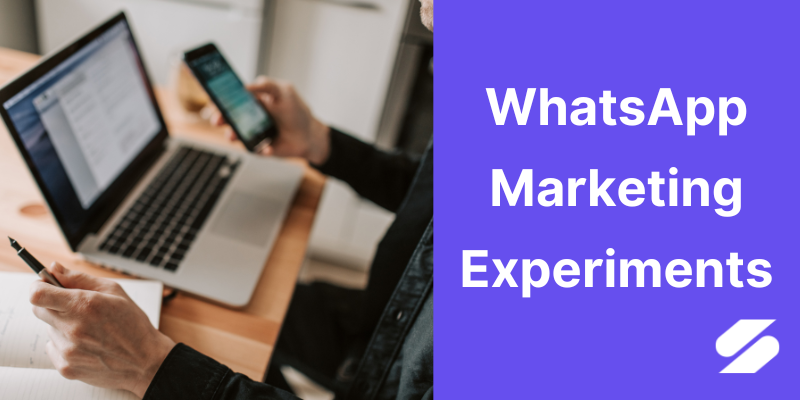Understanding the API
When considering the use of WhatsApp API for your business, understanding its operation and functionality is key. This guide answers all your questions about the basics of the WhatsApp API, the account creation process, managing contacts, and messaging best practices.
WhatsApp API: The Basics
WhatsApp API is ideal for medium to large businesses that want to use WhatsApp with multiple users. Unlike the WhatsApp Business App, the WhatsApp API doesn’t have an app or interface of its own. It needs to be integrated with a messaging software instead.
WhatsApp Business API and Solution Providers
Your experience with WhatsApp API can depend significantly on your Business Solution Provider (BSP). Some providers like Twilio and Vonage integrate the WhatsApp API with their proprietary API, which takes more time and effort for them to include or update new WhatsApp features. On the other hand, BSPs that don’t identify as SMS providers use APIs similar to WhatsApp’s infrastructure, making it easier for them to enable new features.
Hosting Options
There are two WhatsApp API hosting options offered by BSPs: WhatsApp On-premises API and WhatsApp Cloud API. The first is hosted on a BSP’s server or a business’s server, while the second is hosted on Meta’s cloud servers. Cloud API allows businesses to quickly access all the latest API updates and features, but those using On-Premises APIs can’t access new features until their BSPs perform upgrades.
Pricing of WhatsApp API
Businesses can host WhatsApp On-premises API on a BSP’s server or their own. If a business hosts its API, it has to pay for WhatsApp API access and the costs of hosting and maintenance. On the contrary, with WhatsApp Cloud API, businesses only pay conversation charges as per WhatsApp’s pricing.
Components of WhatsApp Business API
Understanding the WhatsApp API components such as the Business Profile and phone number is crucial for a successful integration.
WhatsApp API Business Profile
A WhatsApp API Business Profile provides customers with more information about your business. Businesses can optimize their profiles by updating their cover photo, description, address, email, and website.
WhatsApp API Phone Number
Your WhatsApp API account needs to be associated with a phone number. Depending on your BSP, you can buy a phone number or port an existing one. Remember, the phone number tied to WhatsApp API needs to be able to receive calls or SMS.
Messaging Limits
Unverified businesses can message up to 250 unique contacts in a 24-hour period. Once you’ve verified your Facebook Business Manager, you can send messages to up to 1K, 10K, or 100K unique contacts in a 24-hour period, or even an unlimited number of contacts.
Creating a WhatsApp API Account
Businesses can get WhatsApp API access through Meta or a BSP. While it’s easier to get API access through BSPs, there are two different signup methods available. Businesses can either get a WhatsApp Business API account through the Classic Signup process or Sanoflow.io Express Signup. The latter allows you to create a WhatsApp API account quickly without Facebook Business verification.
Verifying a WhatsApp API Account: WhatsApp Green Tick
A verified WhatsApp API account or an Official Business Account adds credibility to your business. You can request for WhatsApp API verification directly on your WhatsApp Manager or through your selected BSP.
WhatsApp Business API: Messaging
In this section, we explore the two types of conversations allowed on WhatsApp API: User-initiated conversations also known as service conversations, and business-initiated conversations.
WhatsApp API Service Conversations
WhatsApp imposes a messaging limitation known as service conversations to prevent spam and ensure businesses reply to incoming messages quickly. Customers initiate service conversations, and businesses have a 24-hour window to respond.
WhatsApp API Business: Message Templates
After 24 hours from the last incoming message, businesses can only reply with a WhatsApp Message Template. These are pre-approved messages used to reopen the 24-hour customer service window or start a new conversation.
WhatsApp Business API: The Deep Dive
WhatsApp Business API brings in a myriad of features that can give your business the much-needed competitive edge in today’s digital space. With features like messaging automation, multimedia support, and end-to-end encryption, the API makes business communication easy, secure, and highly effective.
Messaging Automation
Businesses can automate their communication process with the API. For instance, they can use automated conversational workflows to guide customers through pre-determined messages, reducing the need for human intervention and increasing efficiency.
Multimedia Support
WhatsApp Business API supports a variety of media formats, including images, videos, documents, and more. This helps businesses to deliver a richer communication experience to their customers.
End-to-End Encryption
WhatsApp Business API ensures the security of your business communication with its end-to-end encryption feature. This means that only you and the person you’re communicating with can read what’s sent, and nobody else can access it, not even WhatsApp.
Five Ways Businesses Can Take Advantage of WhatsApp Business API and SanoFlow
1. Enhanced Customer Service
Businesses can significantly improve their customer service by integrating WhatsApp Business API. They can use automated responses to answer customer queries instantly, reducing response time and improving customer satisfaction. Furthermore, SanoFlow’s Omnichannel Inbox allows businesses to manage all their customer conversations from different channels in one place, ensuring no message goes unanswered.
2. Promotional Messaging
WhatsApp Business API allows businesses to send promotional messages to their customers, enabling them to showcase their new products or services, offer discounts, and more. SanoFlow platform helps businesses send personalized and targeted promotional messages to customers based on their behavior and preferences.
3. Streamlined Operations
Businesses can streamline their operations using the WhatsApp Business API. For example, businesses can automate repetitive tasks such as appointment reminders, payment confirmations, or shipping updates. This not only saves time and resources but also enhances customer experience. SanoFlow’s workflow automation feature can help businesses automate these tasks seamlessly.
4. Customer Relationship Management
WhatsApp Business API and SanoFlow can play a critical role in managing customer relationships. Businesses can use the API and SanoFlow’s Social CRM feature to organize customer data, track interactions, and build personalized customer relationships.
5. Industry-Specific Solutions
Different industries have different communication needs, and both WhatsApp Business API and SanoFlow acknowledge this. They offer industry-specific solutions for various sectors like healthcare, hospitality, automotive, e-commerce & retail, and travel. So whether you need a solution to manage patient appointments in healthcare, customer inquiries in hospitality, or order updates in e-commerce, you can find a solution tailored to your industry’s needs.
By leveraging these advantages, businesses can not only enhance their communication but also build strong, personalized, and long-lasting relationships with their customers. Stay tuned to our blog for more insights and updates on WhatsApp Business API and its best-use practices.
E-commerce Business Use Case: Implementing WhatsApp Business API and SanoFlow
Let’s take a closer look at how an e-commerce business can leverage the power of WhatsApp Business API and SanoFlow.
ZestCart, a budding online grocery store, is looking for a robust solution to manage its growing customer base and deliver superior customer service. They decided to implement WhatsApp Business API and integrate it with the SanoFlow platform.
Customer Service
To begin with, ZestCart uses SanoFlow’s Omnichannel Inbox to manage all customer queries coming from various channels including email, website, and social media, in one place. This ensures they respond to every query on time, enhancing their customer service.
Order Updates
Next, ZestCart uses the WhatsApp Business API to automate order updates. Once a customer places an order, they receive automated messages detailing their order confirmation, dispatch details, and delivery updates. This keeps customers informed at every stage of their purchase, building trust and transparency.
Promotional Messaging
ZestCart takes advantage of WhatsApp’s promotional messaging to keep customers updated about their latest offerings, discounts, and sales. Personalized messages are sent based on customer’s shopping habits and preferences, leading to a higher engagement rate.
Feedback and Reviews
Post-delivery, customers receive an automated message requesting them for feedback or a review. This helps ZestCart gather valuable insights on their service and product quality, and work on areas of improvement.
Customer Relationship Management
Finally, ZestCart uses SanoFlow’s Social CRM to track customer interactions, understand their preferences, and build personalized relationships. This results in higher customer satisfaction and loyalty.
By integrating WhatsApp Business API with SanoFlow, ZestCart has not only streamlined its operations but has also seen significant improvement in customer engagement and satisfaction. This has led to an increase in repeat purchases, positive word-of-mouth, and overall growth in sales. Visit our E-commerce and Retail page for more information on how SanoFlow can transform your e-commerce business.
Frequently Asked Questions
1. What is WhatsApp Business API?
WhatsApp Business API is a service designed for medium to large businesses that wish to use WhatsApp with multiple users. It allows businesses to integrate WhatsApp into their messaging software for efficient customer communication.
2. How can I get access to WhatsApp Business API?
You can get access to WhatsApp Business API either directly through Meta or through a third-party service known as a WhatsApp Business Solution Provider (BSP). BSPs often provide a more streamlined process for obtaining API access.
3. What is the difference between WhatsApp On-premises API and WhatsApp Cloud API?
WhatsApp On-premises API is hosted on a BSP’s or business’s server, while WhatsApp Cloud API is hosted on Meta’s cloud servers. With the Cloud API, businesses can quickly access all the latest API updates and features.
4. What are the messaging limits on WhatsApp Business API?
Unverified businesses are limited to messaging 250 unique contacts in a rolling 24-hour period. Once you’ve verified your Facebook Business Manager, you can achieve higher messaging limit categories, and up to unlimited unique contacts in a rolling 24-hour period.
5. What are WhatsApp Message Templates?
WhatsApp Message Templates are pre-approved messages used to reopen the 24-hour customer service window or start a new conversation after 24 hours from the contact’s last incoming message.






